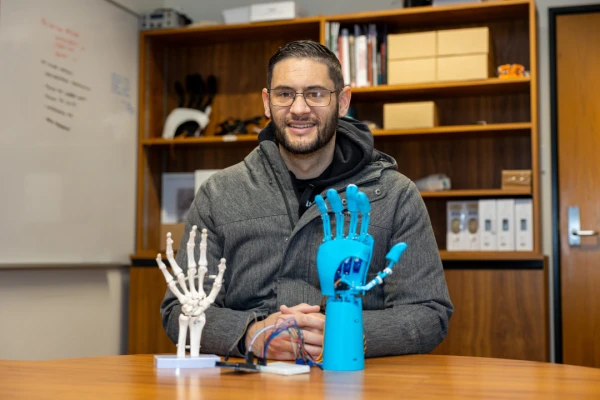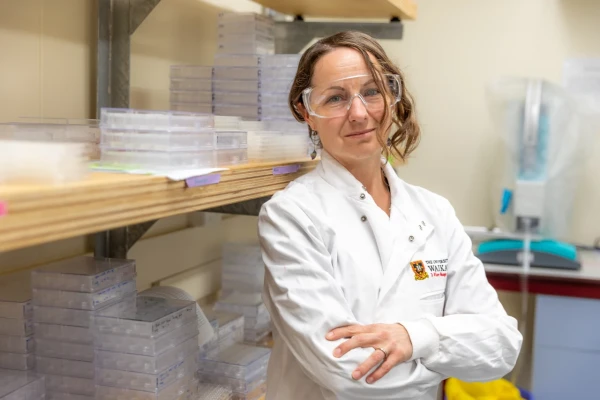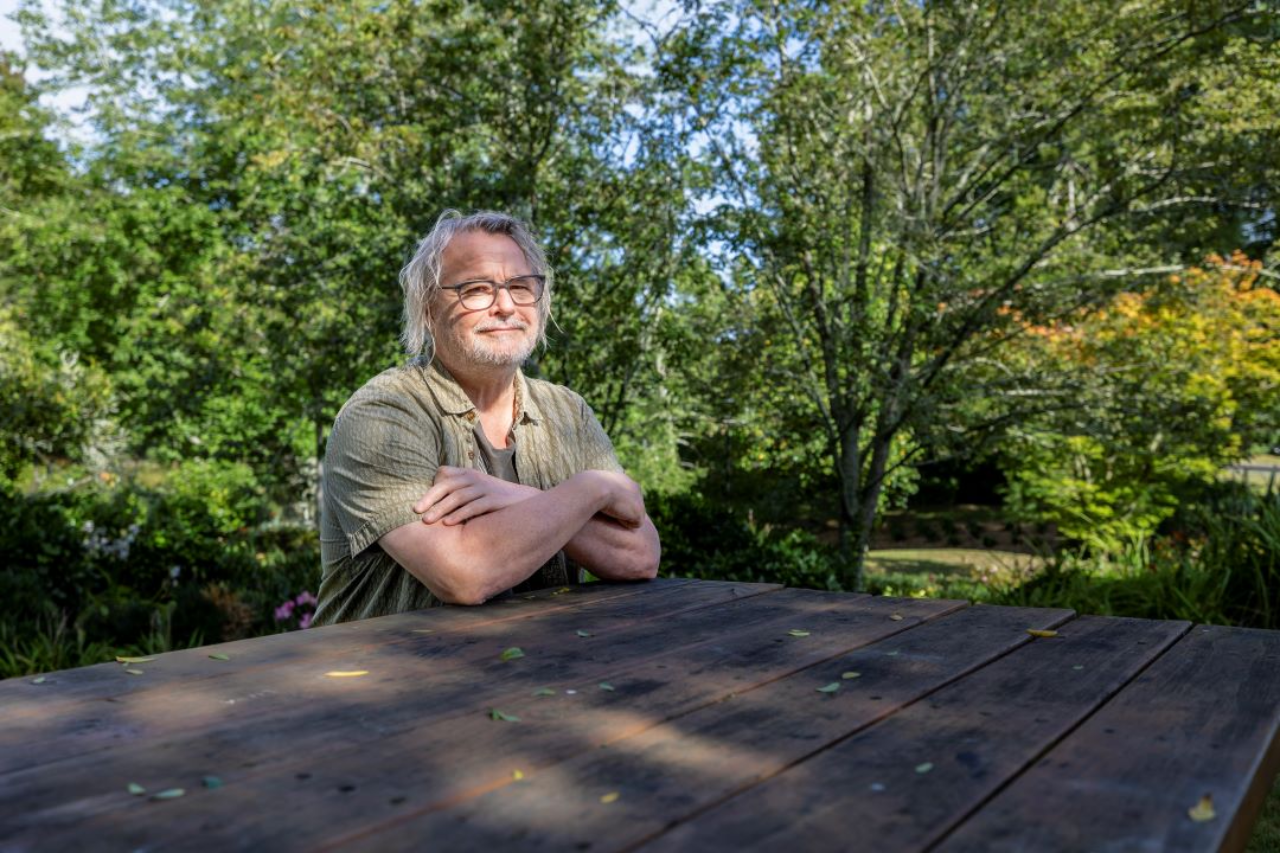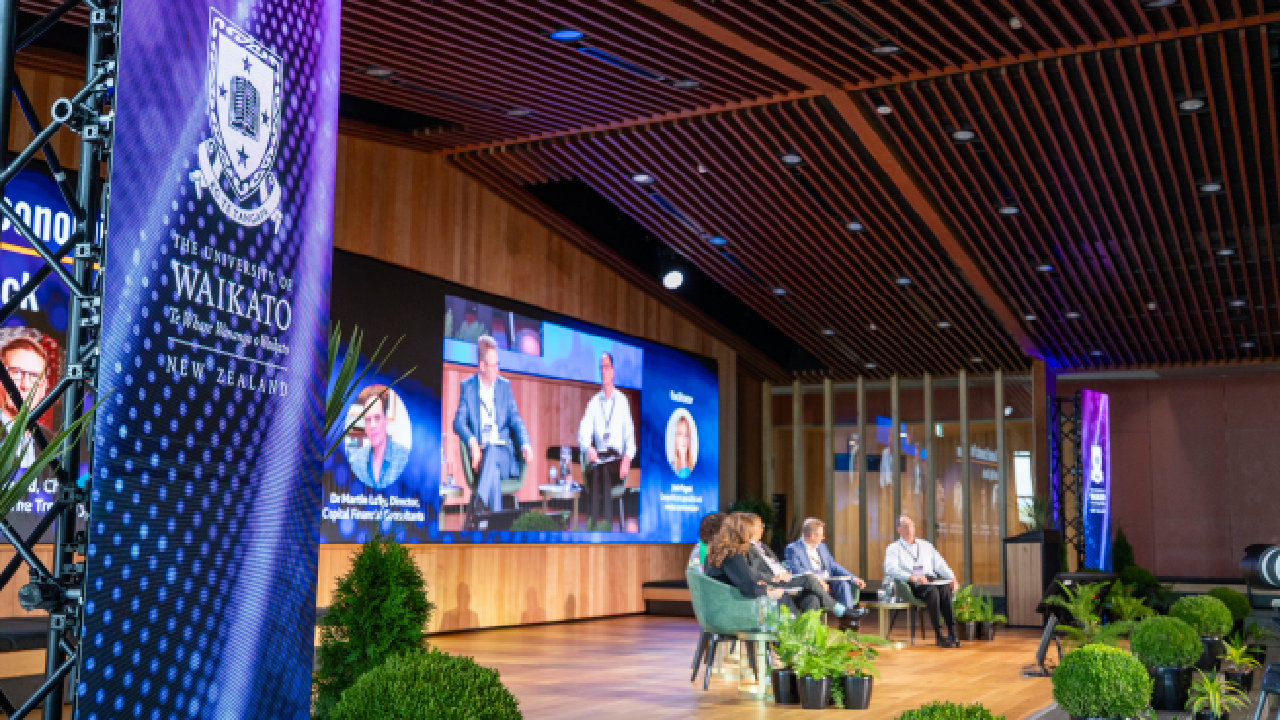Almost half of people who are missing limbs won't use their prosthetic, says a University of Waikato engineer who is on a mission to help amputees overcome barriers to uptake.
Meanwhile, another Waikato researcher is exploring a bold new approach to drug design, one that could lead to powerful treatments targeting harmful bacteria and cancer.
The two academics and their respective teams are recipients of Health Research Council grants.

Dr Mahonri Owen and his team have been awarded the Māori Health Emerging Researcher First Grant
Senior Lecturer in Te Kura Mata-Ao School of Engineering Dr Mahonri Owen (Ngāti Hine; Ngāti Tūwharetoa) and his team have been awarded the Māori Health Emerging Researcher First Grant for their project Te Ara Whaipakari: empowering amputees through personalised rehabilitation, for which they’ll receive $400,000 over three years.
Senior Lecturer in Biomedical, Molecular and Cellular Biology Dr Adele Williamson has received an Explorer grant for 24 months, worth $150,000, for her project Conformational targeting of ligase linkers: A new view on inhibition.
Deputy Vice-Chancellor Research Professor Gary Wilson says he is pleased to see the projects recognised with funding.
“The success demonstrates the multidisciplinary nature of our Health Research at the University of Waikato with these two projects led from engineering and biological sciences contributing to better health outcomes for New Zealand,” he says.
Tackling the mental load of prosthetic use to reduce rejection rates
Dr Owen says despite advances in 3D printing meaning prosthetics are becoming more cost-effective, lightweight and customisable, the mental effort of learning to use a prosthetic remains. That's a target of his newly funded research project.
The project will involve making a system that can tell if someone’s brain is getting tired when learning how to use a prosthetic and developing training methods to support motor learning. The team will also design devices to make rehabilitation easier and more effective.
"The big issue with prosthetic rejection is that it takes too much cognitive effort to be able to control them,” Dr Owen says. “Our aim is to make the entire process more palatable by using narratives and stories to improve how well people learn something.”
By improving the process to the point that it's intuitive, almost like using their own hand, the person gets more cognitive function back and will have the energy to focus on different things.
Dr Owen says around 40% of people reject prosthetic myoelectric limbs.
“That’s almost one in every two people who will put the device into their cupboard and never use it for the rest of their life.”
This is a huge potential expense with prosthetic electromechanical hands ranging from $16,500 to $138,000 each.
Dr Owen says a lot of amputees really struggle with the change in quality of life, no matter whether their amputation results from trauma, dysfunction, disease, or medical conditions.
“Most people look at it like a physical loss when it's definitely not just that, it has a big impact that also affects their social circles and their whānau,” he says.
The project will be delivered from Te Kura Rau Mahara- Waikato Wearables Research Laboratory.

Dr Adele Williamson and her team have been awarded an Explorer grant.
Disrupting disease by designing proteins that halt enzyme motion
Dr Williamson and her team will look at using inhibitors to prevent bacteria like Neisseria gonorrhea or cancer cells from growing.
Dr Williamson says the grant validates an idea she formed with fellow Waikato researchers Dr Joanna Hicks and Dr William Kelton over a cup of coffee.
Instead of using the usual method of designing tiny molecules that block enzymes – the molecular machines that that help disease-causing cells grow – this project looks at how those enzymes move.
She says that by understanding their motion, they hope to create a new kind of protein that can latch onto the enzyme and stop it from working properly.
“It’s like watching how a lock twists and turns and then building something that freezes it so the key can’t turn,” she says.
Dr Williamson points out the project isn’t about preventing cancer or making a vaccine. It’s still in the very early stages – not something that would be used to treat people yet.
“We know how cancer cells make a certain protein that helps connect pieces of DNA. The goal is to design something that can block that protein from working.
“Once that blocker is made, the team tests it in a petri dish to see if it stops cells from dividing. That’s as far as the project goes for now.... but this sets the scene for future therapies based on this approach”
She says in the future if someone already has cancer or a bacterial infection, this kind of inhibitor could be used to stop the harmful cells from growing and spreading.



